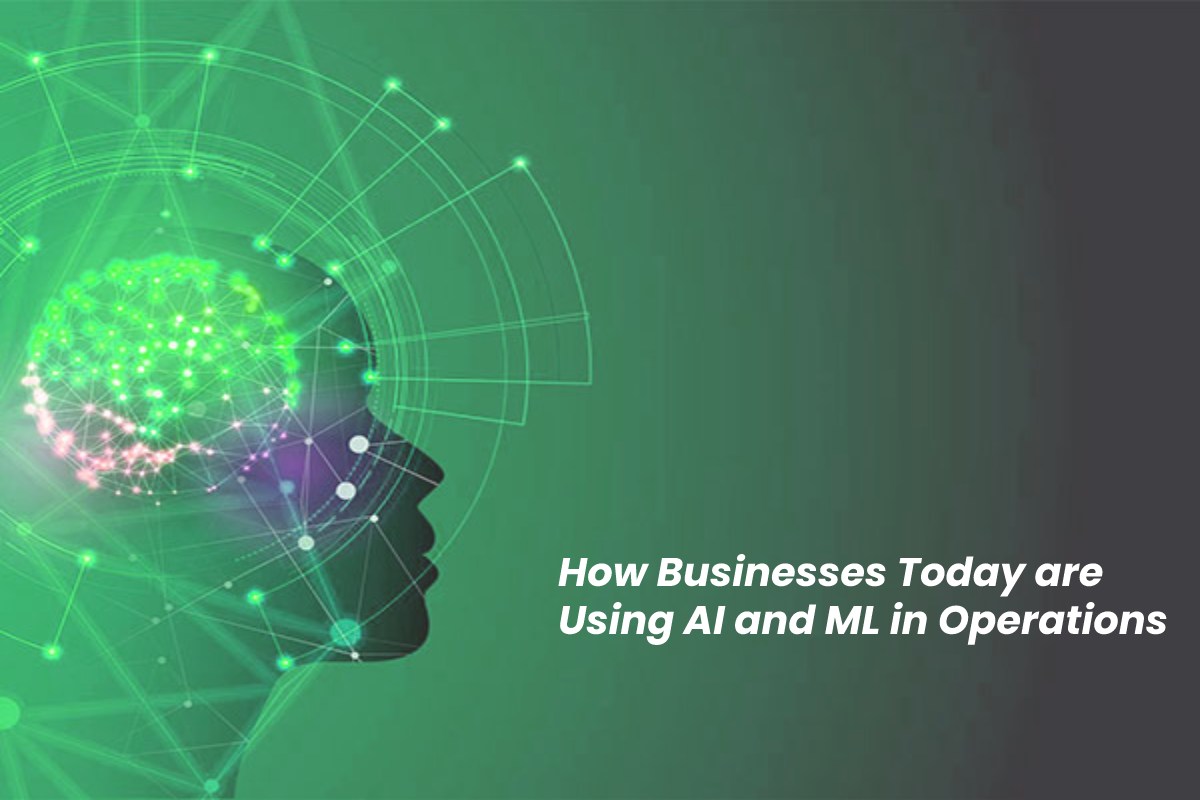Table of Contents
Introduction to Artificial Intelligence
AI and ML – We, humans, tend to get work done by someone else and have a relaxed day. The task of programming a computer, robot or other items to think like an intelligent or average human is known as Artificial Intelligence (AI). Artificial Intelligence (AI), it is the study of how the human brain thinks, learns, makes decisions and solves problems. Artificial Intelligence aims to improve computer functions linked to human understanding, such as reasoning, learning and problem-solving. Finally, this research results in the development of intelligent software systems. Considering that you have been acquainted with the introduction to Artificial Intelligence, let’s look into how AI is used in business operations.
Uses of AI and ML in Business Operations
Provides Support and Resolves Queries
Machine Learning algorithms and Natural Language Processing (NLP) are used by Chatbots. For instance, to interpret client demands and answer correctly. And also, they accomplish it more quickly and at a cheaper cost than human workers. Recommendation functions, which employ customer data and predictive analytics to suggest things that customers are most likely to need or want and purchase, are powered by AI.
Intelligent systems can also assist staff in providing better service to customers by using analytics similar to those used in Chatbots and recommendation systems to give workers recommendations as they attend to consumers.
Specific Customer Reach
In the real world, AI may also assist firms in delivering tailored marketing. Some businesses have begun to combine advanced technology, like facial recognition and geolocation software, with analytics to identify customers and subsequently push products, services or sales tailored to their specific interests.
Quick Solutions for Problems
For example, AI can handle a wide range of client requests, routing calls to available workers and those best qualified to address their unique needs.
Meanwhile, retailers use AI for intelligent shop design, optimised product selection and monitoring in-store activity. Some companies are employing Artificial Intelligence to keep track of inventories on shelves in various ways, including the freshness of perishable goods.
AI is having an impact on IT operations as well. Some intelligence software products, for example, detect anomalies that suggest hacking and ransomware attacks, while others with AI provide self-healing capabilities for infrastructure issues.
AI for Education
Many businesses are already utilising or investigating Artificial Intelligence software to improve how people learn, indicating that AI’s potential impact on education is enormous. They can use intelligent tools to tailor educational plans to each learner’s specific learning needs and comprehension levels.
AI for Quality Checks
Machine vision, a type of AI, has been used by manufacturers for decades. However, they’re now developing such applications by incorporating quality control software with Deep Learning capabilities to increase the speed and improve the accuracy of their quality control operations while lowering costs.
As Deep Learning models establish their criteria to decide quality, these systems provide a more precise and ever-improving quality assurance role.
Conclusion
Post reading such a wide range of applications for [AI and ML], many students and professionals would want to get into this field and contribute their research. Herewith, there is a wide range of courses available. If you’re enthusiastic about learning AI, then a PG Program in Artificial Intelligence and Machine Learning can get you going.


